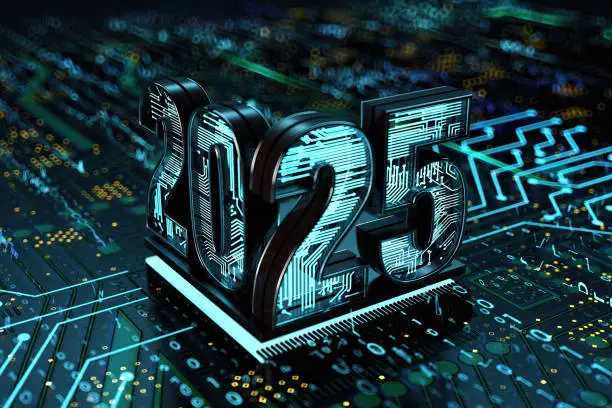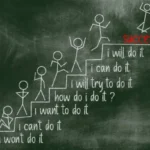What Are Digital Skills?
Digital skills are the abilities and knowledge required to use digital tools, platforms, and systems effectively. Whether it’s editing a video, coding an app, analyzing data, or running a social media campaign—if it involves tech, it’s a digital skill.
Why Are They Important in 2025?
The digital economy is booming—and it’s not slowing down. In 2025, employers are not just looking for qualifications—they want real, applicable skills. Mastering digital tools gives you the edge in an increasingly competitive job market.
1. Data Analytics
Understanding Data Trends
Data is the new oil. But raw data is useless unless you know how to interpret it. Data analytics helps you uncover patterns, trends, and insights that drive decision-making.
Tools to Learn (Excel, Google Analytics, Tableau)
Start simple with Excel for spreadsheets and pivot tables. Then, move on to Google Analytics for website metrics, and dive into Tableau or Power BI for data visualization.
2. Artificial Intelligence (AI) and Machine Learning (ML)
Future-Proof Your Career with AI
AI isn’t just about robots—it’s everywhere. From chatbots and recommendation engines to self-driving cars, it’s reshaping industries. Learning the basics of AI will make you stand out.
Beginner-Friendly AI Tools
Try ChatGPT, Runway ML, or Google’s Teachable Machine. These no-code or low-code platforms help beginners experiment with AI without deep programming knowledge.
3. Cybersecurity
Digital Threats Are Growing
Every year, cyberattacks cost billions globally. As more data goes online, the risk increases. Cybersecurity experts are in massive demand across all sectors.
Skills You Need to Stay Ahead
Learn ethical hacking, risk assessment, and encryption techniques. Tools like Wireshark, Kali Linux, and Splunk are a good starting point.
4. Cloud Computing
Why the Cloud Is the Future
Gone are the days of saving everything on a USB stick. Now, businesses run on cloud infrastructure, offering scalability and accessibility.
Platforms to Learn (AWS, Azure, GCP)
Focus on Amazon Web Services (AWS), Microsoft Azure, and Google Cloud Platform (GCP). These dominate the cloud space and offer certifications that are highly respected.
5. UX/UI Design
Creating Seamless Digital Experiences
Ever quit a website because it was ugly or confusing? That’s poor UX/UI. Good design improves user satisfaction and keeps people coming back.
Top Tools (Figma, Adobe XD)
Figma and Adobe XD are essential for wireframing and prototyping. They’re beginner-friendly, collaborative, and in high demand by design teams.
6. Digital Marketing
Content, SEO & Social Media
From viral TikToks to blog posts like this one—digital marketing is storytelling at scale. You need to know how to rank on Google (SEO), write compelling content, and engage on platforms like Instagram and LinkedIn.
Certifications to Consider
Check out Google Digital Garage, HubSpot Academy, or Meta Blueprint for free certifications that look great on your resume.
7. Programming & Web Development
Coding Languages to Learn
If you can code, you can create anything online. In 2025, Python, JavaScript, HTML/CSS, and SQL are the MVPs of web development.
Build Real Projects
Start small: a personal website, a to-do app, or a blog CMS. Use platforms like GitHub to showcase your work and get feedback from real developers.
8. Video Editing & Content Creation
Why Video Is King
People love video—it’s engaging, personal, and easy to digest. Whether you’re marketing a product or building your brand, video content rules in 2025.
Tools like Adobe Premiere & CapCut
Use CapCut for quick mobile edits and Adobe Premiere Pro for professional-grade video. Add Canva to the mix for thumbnails and social media visuals.
9. Blockchain & Web3
The Rise of Decentralization
Even with ups and downs, blockchain isn’t going away. It powers cryptocurrencies, NFTs, and decentralized apps (dApps). Understanding it can give you a tech-savvy edge.
NFTs, Smart Contracts & More
Learn how Ethereum, Solana, and Polygon work. Explore smart contracts, wallets, and marketplaces like OpenSea.
10. Remote Collaboration Tools
Mastering the Digital Workspace
Remote work isn’t a trend—it’s the new normal. Knowing how to collaborate digitally is key.
Tools like Notion, Slack, Zoom
These tools help manage projects, communicate across teams, and stay productive. Notion for docs, Slack for quick chats, and Zoom for virtual meetings.
Bonus: Soft Skills for the Digital World
Adaptability and Growth Mindset
Digital tools change fast. You’ve got to stay curious and flexible, always ready to learn something new.
Communication and Teamwork
Even the best coder needs to explain things clearly. Strong digital communication and teamwork are priceless in any remote or tech-heavy role.
Where to Learn These Skills
Top Free and Paid Platforms
- Coursera (Stanford, Google, IBM courses)
- edX (Harvard, MIT)
- Udemy (Affordable, beginner-friendly)
- LinkedIn Learning (Professional-level)
- FreeCodeCamp (Totally free and code-focused)
Tips for Staying Consistent
- Set goals (e.g., finish 1 course/month)
- Join communities on Reddit, Discord, or Twitter
- Track your progress and reward yourself for milestones
Conclusion: The Future Is Digital—Are You Ready?
In 2025, knowing how to navigate the digital world isn’t optional—it’s survival. The top digital skills we’ve covered aren’t just trendy—they’re transformational. They help you earn more, stay relevant, and unlock endless opportunities.
Don’t feel overwhelmed. Pick just one skill, start learning, and build from there. The digital world waits for no one—but it rewards those who jump in and take action.
FAQs
1. Which digital skill is the easiest to learn first?
Start with digital marketing or UX design. They’re intuitive, creative, and don’t require technical knowledge to begin.
2. Are these digital skills suitable for remote jobs?
Absolutely! In fact, most of these skills are in high demand for remote roles, especially in startups and tech companies.
3. Can I learn these skills without a college degree?
Yes. Platforms like Coursera, Udemy, and freeCodeCamp offer all you need to learn from scratch—many courses are even free.
4. How long does it take to master one digital skill?
Depending on the skill, 3 to 6 months of focused learning can take you from beginner to job-ready.
5. Which digital skill pays the most?
Currently, AI/ML, cloud computing, and cybersecurity lead the way in terms of salary potential and job openings.





